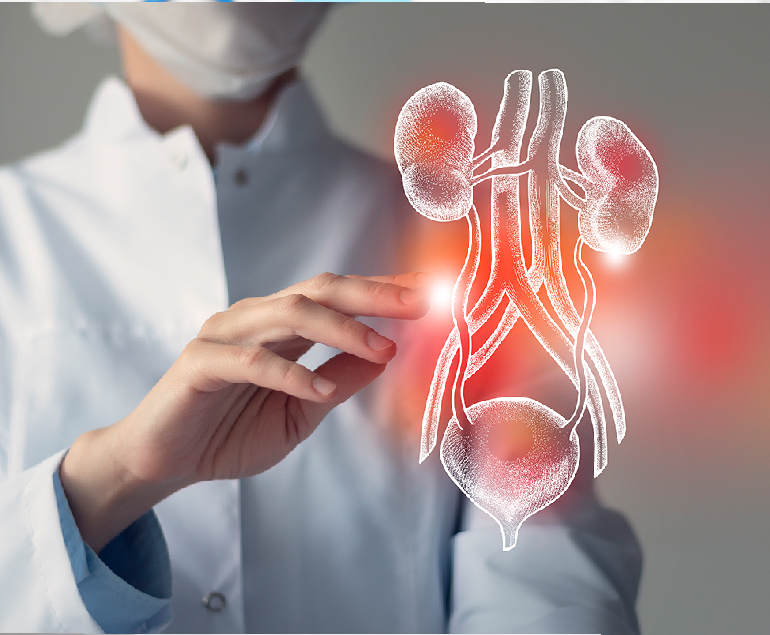
Nephrology
Nephrology is a branch of medical science focused on diagnosing and treating kidney diseases, including electrolyte disturbances and hypertension. It also involves care for patients requiring renal replacement therapy, such as dialysis and kidney transplants.
Nephrology studies systemic conditions affecting the kidneys, like diabetes and autoimmune diseases, and disorders that arise due to kidney disease, such as renal osteodystrophy and hypertension. Nephrologists specialize in treating conditions like acute kidney injury, chronic kidney disease, hematuria, proteinuria, kidney stones, and electrolyte imbalances.
Early diagnosis and timely intervention are essential for maintaining kidney health. Regular screenings and specialized care can significantly improve patient outcomes.
Why Raksha?
Our Nephrology team at Raksha Hospital consists of highly qualified and experienced specialists with advanced skills in managing kidney disorders and performing transplant procedures. At Raksha, we provide expert care for a wide range of kidney-related conditions, including:
- Kidney Transplant
- Combined Kidney & Liver Transplant and Kidney Biopsy
- Continuous Renal Replacement Therapy (CRRT)
- Peritoneal Dialysis (CPD)
- Plasma Dialysis (Plasmapheresis)
- Liver Dialysis (MARS Therapy)
Comprehensive Nephrology Treatments
Our nephrology department offers personalized treatment plans that include:
- ✔ Medications for managing kidney diseases
- ✔ Blood products & plasma exchange therapy
- ✔ Surgical interventions (urology, vascular, and transplant procedures)
- ✔ Dialysis treatments (Hemodialysis, Peritoneal Dialysis, CRRT)
- ✔ Kidney transplantation for end-stage renal disease
- ✔ Advanced care planning for long-term kidney health
Kidney diseases can significantly impact quality and longevity of life. At Raksha Hospital, we emphasize early diagnosis, lifestyle modifications, and advanced medical therapies to help patients maintain optimal kidney function. Psychological support, health education, and routine monitoring also play a crucial role in ensuring better patient outcomes.
Symptoms
- Swelling in legs or face
- Fatigue
- High blood pressure
- Frequent urination
- Blood in urine
- Unexplained weight loss
Causes
- Diabetes
- High blood pressure
- Genetic disorders
- Autoimmune diseases
- Urinary tract infections
- Long-term medication use
Treatment
- Dialysis
- Kidney transplant
- Medications
- Blood pressure management
- Specialized diet
- Regular monitoring
Care
- Routine kidney checkups
- Maintaining a balanced diet
- Staying hydrated
- Managing blood sugar and pressure
- Avoiding excessive medication use
- Exercise and stress management
